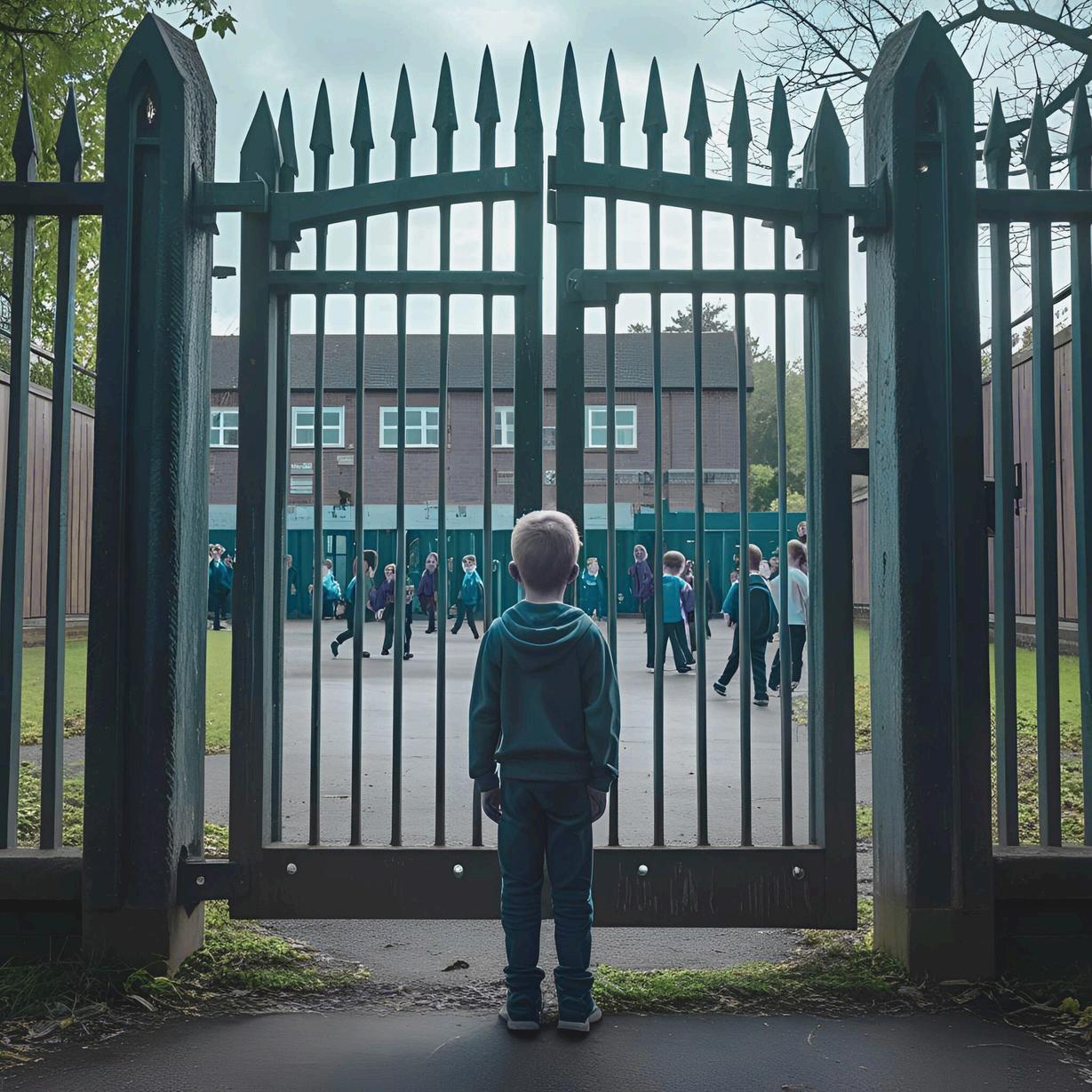

MeettheTeam!




ExecutiveEditor-SarahNaish SarahisaTherapeuticParent,an Adopteroffivesiblings,Bestselling internationalAuthor,KeynoteSpeaker andfounderofthreeIndependent TherapeuticFosteringAgencies Sarah isalsoandco-founderandCEOatThe CentreofExcellenceinChildTrauma CIC
ManagingEditor-Kathryn Talbot
Kathrynisco-founderandDirector ofTheCentreofExcellenceinChild TraumaCICspecialisingin communicationsandpublic relations.


Contributor-RussHartland-Shaw RusssetupBreatheLeadership& BusinessCoachingin2020asaresult ofadoptingandbecomingaparentto twoboysin2019 Hewastheninspired tospecialiseinTherapeuticParenting tosupportfamiliesnavigatingthe challengesofearlychildhoodtrauma.

Contributor-ArabellaSkinner ArabellaisPolicyDirectoratHealth ProfessionalsforSaferScreens ShehasanMScinPsychologyand hasexperiencecampaignfor children Sheisamotherof teenageboys

Contributor-DrLibbyGaskell Libbyisacharteredpsychologistwho hasworkedwithchildren,young people,andtheirfamiliesfora numberofyears Libbyoffers specialisttherapeuticinterventions andassessmentsforfamilieswho havebeenaffectedbytraumaand attachmentdifficulty,andalsooffers consultationandtraininginthese areastovariousprofessionalteams.
ExecutiveEditor-SairPenna Sair(Sarah)isaTherapeuticParent, Author,ParentCoachandHavening practitioner.Sairisalsoco-founder andDirectorofTraining, Qualifications&QualityatThe CentreofExcellenceinChild TraumaC.I.C
Contributor-JessicaSpenceley Jessicaisatherapeuticsocial workerwithover20yearsof experiencehelpingadoptiveparents navigatetheirparentingjourneys usingtheattachment-based, trauma-informedparenting approachofTBRI®
Contributor-JuliaBlack JuliaisthecreatorofLightsOn®,a groundbreakingapproachtolearning andlifethathelpsfamiliesmovefrom survivaltoradiance She'salsothe authorofLightsOnLearning a transformativeguidethatempowers parentstoignitetheirchild’sloveof learningbyreconnectingwiththeirown innerspark


Contributor-DrZacharyDuToi DrZacharyDuToitisaGPRegistrar withaninterestinthewider determinantsofhealth,inparticular childrenandyoungpeople'smental healthandintersectionoftechnology andhealth
Contributor-NeilCunningham Neilisacarer,musician,andbreath instructor Hedevelopedthe'OffSwitch' breathprogramtopromoteself-care andwell-beingamongfosterchildren andcarers,creatingasupportivespace forguidedbreathingpractices Through hiswork,NeilhaspartneredwithHealth TrustsandNHSprofessionalsto enhancementalhealthandoverall wellnessinthecommunity
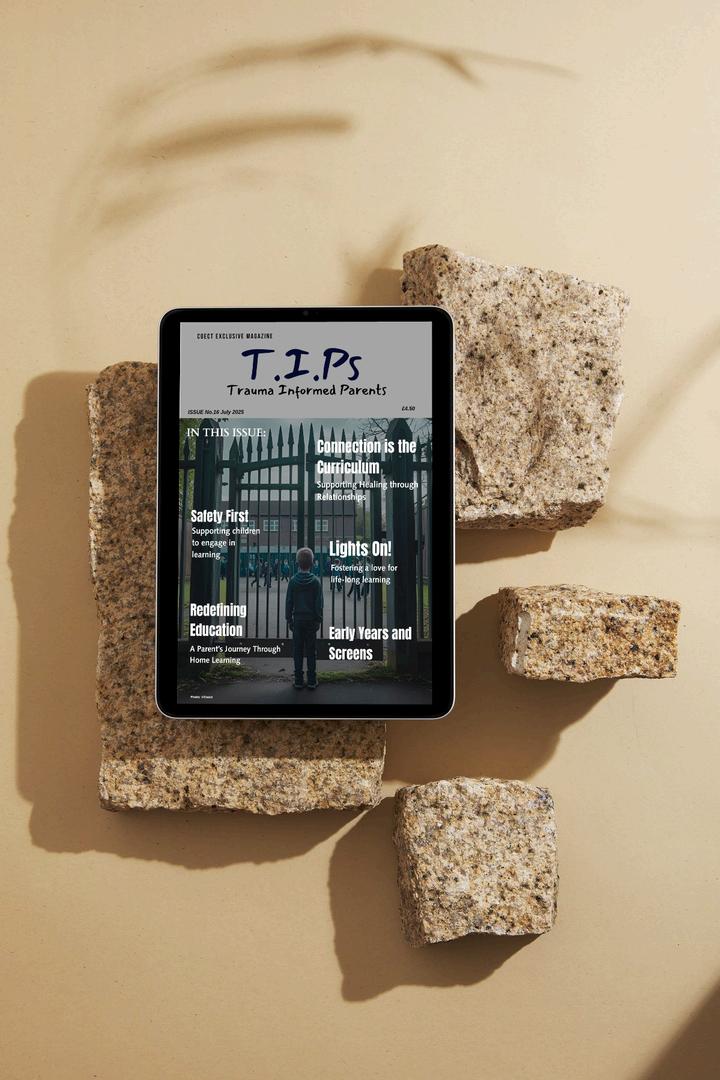
FromitsbeginningsasaTherapeuticParentingGrouponFacebook,a decadeago,wehaveevolvedintoaCommunityInterestCompany dedicatedtosupportingparentsofchildrenwhohavefacedearlylife traumaanddisplayneurodiversecharachteristics Thisedition focusesonTheCentreofExcellenceinChildTraumaCIC
Editor’s Note
Welcome to July’s edition of TIPS magazine!

This issue’s theme is all about different ways of learning and what happens when school isn’t the right fit for the child Whether that be home schooling, where the child is still on roll at school and accessing online learning at home, or home education, where the parents have decided to take responsibility for the child’s learning Some of the articles in this issue focus on breaking down the information and options If school doesn't work for your child, there are other ways to support their learning and achievements
In this issue, we are joined by Russ Hartland-Shaw, a parent coach and adoptive parent, who shares his story of homeschooling his child Arabella Skinner and Dr Zachary du Toit from Health Professionals for Safer Screens address the impact of screen time on young children, particularly those under two, and discuss the research, emphasising the importance of healthy modelling by parents Julia Black has kindly written an article that highlights the importance of supporting children in developing a love for lifelong learning, starting with parents She presents "Lights On®" as a way to integrate mental, emotional, physical, and spiritual aspects of learning
Libby Gaskell's article, "Safety First!", discusses the difficulties children with early trauma face in school and how supportive school environments can be safe havens, helping to counteract the effects of trauma by taking a trauma-informed approach Also, our regular contributor Jessica emphasises the importance of connection in learning Her article encourages parents to use everyday moments to instil a sense of worth, safety, and love in their children, which is essential for effective learning She leads Nurtured Belonging, helping adoptive parents support their children's growth
We are delighted to welcome our resident Breathwork Instructor, Neil Cunningham, as he shares insights about “Off Switch,” a self-care breath program designed specifically for parents and carers He provides 15-minute guided sessions focused on breathing techniques, allowing participants to relax without pressure or expectations The goal is to enhance well-being and build a supportive community If you haven’t joined one of his sessions, it is well worth giving it a try!
Also, Jo and Helen from our COECT team have written an article about the Level 2 Award in Therapeutic Parenting, which supports parents facing challenges like care proceedings or supporting children with EHCPs
As always, we hope you enjoy reading, and if you would like to get in touch with us to contribute to future editions, you can contact us via tips@coect co uk We wish you a peaceful summer (hopefully) and will be back in September with Issue 17!
Redefining Education: A Parent’s Journey Through Home Learning
Written By Russ Hartland-Shaw
When I shut down my laptop at the end of July 2020, I remember feeling a huge sense of relief and personal achievement, having successfully navigated homeschooling with my then 5-year-old son I also remember, vividly, thinking that teachers deserved danger money for choosing their vocation in life! I had a newfound respect for teachers and their ability to keep children engaged and motivated to learn, day in, day out I also recall thinking this was an experience I never wanted to repeat Aside from another stint of homeschooling the following year and this time over the winter months, I vowed that homeschooling was not for me or my son How wrong I was, and looking back, how misguided at the same time.
Homeschooling during the pandemic cannot be compared to longer-term home educating options. They are entirely different, so if there is a part of you, understandably, dismissing the idea based on your homeschooling experience in the pandemic being your only reference point, I would advise you to remain open and continue to explore your options It is certainly not for everyone, and it comes with the acceptance that your life will change, but it is important to be aware of the facts before decisions are made I am

by no means an expert, but this is our account as a family and our experience of navigating learning at home as a solution to our son’s educational needs.
My son is dealing with the impact of early childhood trauma as a result of his early lived experiences This has made navigating the classroom very challenging for him and, on and off, has seen him spend extended periods of time away from school and his friends We have tried everything, from reduced timetables and coming home for lunch to reset, to one-to-one provision in a side room at school
Ultimately, the school environment in its traditional form is simply not right for him So, educating at home, certainly for the short to medium term for us, is where we have arrived.
My son and I have been on a massive learning curve these past few months, which in itself has been wonderful for connection and attachment. There are many versions of education at home, ranging from deregistering your child from the national curriculum and school system entirely and
going it alone with the support of other home educators, known as home education; to home schooling which has more involvement from the Local Authority and can range from reduced timetables and flexi schooling that sees a child on a parttime timetable in school and working from home or accessing alternative provisions elsewhere
Enter into the world of a child who struggles in school; however they might present, and you will realise there is a crisis emerging of epidemic proportions Our education system is failing thousands and thousands of children, up and down the country each year It is woefully behind the times when it comes to well-being You only have to take a look at the workplace and realise how out of touch our education system is What employer would ever expect an employee who might present as a child struggling in school to turn up for work the next day as if nothing had happened and then be told to carry on, doing the same thing over and over again with no consideration for the damage that is being done to their team members' mental health?
When put like that, it is frankly ludicrous. This is food for thought
and the government needs to address this issue through significant and revolutionary reforms, as opposed to placing blame on the shoulders of teaching staff, children, and parents all the time; but this, perhaps, is a topic for another time.
There is an overwhelming number of neurodiversity diagnoses sitting within this population of children struggling in school and opting to be educated at home, too, which for me speaks volumes For anyone to thrive, their environment needs to be right, and there are so many different versions of this that one size does not fit all Education at home solves a fundamental issue for a child who struggles in school; it changes the learning environment, which has the potential to be a game changer This is not to say by any means that this is a quick fix; more often, there needs to be a period of adjustment and healing from the school-based traumas that may have occurred for the child, not to mention the parents
The subject of educating a child at home is a contentious one; there are many judgements made and many different views on what defines it, but fundamentally, it should not be demonised and deemed a compromise. Often a child is dealing with a failed education system that is unable to meet their needs, whether they are academic, social, or emotional, and with this can come an overwhelming sense of failure on the child’s part It is very easy to see the masses, in this case, your peers and friends, seemingly accessing the school environment with no issues, and think you are failing, rather than realising it is the environment and the system that are failing you and your child

If left to fester, these feelings of inadequacy are damaging for the child and make learning even harder Possibly more critically, the child’s mental health is significantly impacted to the extent that it changes the course of their lives forever
There is a common misconception that educating at home, whether that is home schooling or home education, means your child has to sit for 6 hours a day learning. This is because, for most of us at least, that was our own reality in school, not to mention what society dictates, and therefore our only reference points. To learn at home is to follow the passions and interests of the child; this is not to say subjects that are not as favourable should be ignored, but the appetite to tolerate them is far greater when your nervous system is not activated, which is the case for many children where home schooling works It is important to note that each case is unique, though
So as a parent who is fairly new to this process compared to some, my top tips are as follows:
It depends to what extent educating at home is adopted as a methodology, but it is important to note that it is worth doing your research before embarking on it
Work with the agencies involved and foster the best relationships you can
Seek advice from other home educators both when it comes to handling agencies and how to home school.
Do not be scared off just because the world around you is suggesting there is only one path to education.
Trust your instincts and advocate for your child as best you can
Whether it is home education, home schooling, flexi schooling, or anything in between, do your research and reach out to others in a similar situation Your allies might not be where you think they are either
Mainly due to others' judgement and fear, the most wellintentioned people who have strong and deep-rooted opinions believe they know best and that following the norm can be the only course of action. This can make you doubt yourself and feel as though you might be making a mistake Yes, there is an element of risk, but ensuring you are fully aware of the facts is a great place to begin to make some informed decisions
There are a great number of fantastic resources out there, as well as a whole community of people who offer support and guidance when needed These groups are all full of people going through the same or a similar situation, and as a result, they are able to offer practical advice and an honest account of what to expect.
I would encourage you to make contact with the groups listed as a first step to understanding if an
alternative route to education is right for your family
Not Fine in Schools – available on Facebook
Home Education for All –available on Facebook
Home Educators UK Empowering Parents in Home Education
As I reflect on our own home learning experience so far, I can tell you without a shadow of a doubt in my mind that it has saved my son from lasting damage to his wellbeing and mental health He is thriving at home, where ultimately, he feels safe. He is engaged in learning, as much as any 10-yearold is; he has his moments, like anyone else, after all, but the point is that he is open to the process in a way that was not possible in a mainstream setting.
He is, and we are, doing things differently Once you get over the initial shock and judgement from others and become comfortable with your own anxieties, it is an empowering experience I refuse to allow my son to feel like he has failed and is somehow settling for second best when it comes to his education, so we spend our days reminding him that there are many routes to learning, and it is not always about being in a building that makes him feel nervous and scared For now, my son's classroom is our kitchen and the garden, and when you do things differently, it is amazing to see where those teachable moments are, and what is most rewarding is to see the difference this environment makes for your child.
YoucanfindoutmoreaboutthesupportRuss offerstoparentsviahiswebsite. https://wwwbreathebusinesscoachingcom
RussisalsoanAssociatewithTheHaven,The CentreofExcellenceinChildTrauma’s ParentalSupportService
TIPS Consult
Are you looking for a supportive space to explore real-life challenges in therapeutic parenting and trauma-informed care?
Come along with your parenting-related questions and let us help you find a resolution to the difficulties you are experiencing.
Join us on 21st August 10 am - 11 am for our next session
Book at www.coect.co.uk/events or scan the QR code below


Launching September 2025

Level 4 Diploma in Trauma-Informed Practice
Become a certified Trauma-Informed Practitioner and deepen your ability to support healing and resilience.
✔ Accredited Level 4 Qualification
✔ Flexible Online Learning
✔ Ideal for Social Workers, Family Support Workers, Therapists, & Educators, working with children who have experienced trauma.
✔ Starts September 2025
Learn more and register for enrolment by following the link www.coect.co.uk/level-4-qualification or scanning the QR code:



Connectionisthe Curriculum:Supporting HealingandLearning
ThroughRelationships
Written By Jessica Spenceley
It’seasytothinkoflearningas somethingthathappensatschool –readingbooks,sittingatdesks, raisinghands.Butlongbeforeyour childeverstepsintoaclassroom, they’realreadylearningfromyou.
Asaparent,youshapenotjust whatyourchildlearns,buthow theyexperiencetheworld.Andfor adoptedkiddos,thatworldcan sometimesfeeluncertainor overwhelming
SafetyFirst,Always
Learningstartswithfeelingsafe
Whenyourchildfeelssecureand connectedtoyou,theirbraincan relaxandopenup They’remore abletoexplore,focus,andtakein newinformation Withoutthat senseofsafety,thebrainoften staysinsurvivalmode,prioritising protectionovercuriosity
Forchildrenwho’veexperienced trauma,loss,ordisruption,building safetytakestime However,with yoursteadypresenceand empathy,you’realreadyoffering yourchildoneofthemost importantlessonsthey’lleverlearn: thattheworldcanbeasafeplace.
Connectionisthebesttooltohelp yourchildfeelsafe.Whenyour
childfeelsafe Whenyourchild feelsconnectedtoyou,theirbody releasescalminghormonesthat helpwithregulation.Andwhena childisregulated,they’remore opentolearning–notjust academics,butalsohowto manageemotions,navigate relationships,andhandle challenges.Youmightnoteven realiseit,butyourchildislearning fromyouallthetime.Every cuddle,everysharedlaugh,every momentoflistening,everycalm responsetoameltdown–each oneisteachingyourchildhowto connect,howtorepair,andhow totrust
WhatTBRICanOffer

feelslike
Empowering
Onceachildfeelsconnected, they’remoreopentogrowth. Empoweringstrategiesmeetyour child’sphysicalandsensory needs–thingslikemovement breaks,snacks,andcalming routines.
Thesesupportshelpregulatethe nervoussystemandmakeit easierforyourchildtofocus, cope,andlearn
Correcting
That’swhereTBRI(Trust-Based RelationalIntervention®)comesin TBRIisapractical,compassionate approachthathelpsyoustay connected,especiallywhen thingsfeelhard. Itofferstools acrossthreecoreareas: Connecting,Empowering,and Correcting
Connecting
Thisiswhereteachingbegins Eye contact,play,cuddles,and attunedpresencehelpyourchild feelseenandunderstood Even small,simplemomentslike slowingdownandreallylistening canspeakvolumestoachild
Correctingdoesn’tmean punishment Itmeansoffering gentleguidance WithTBRI, boundariesandstructurecome throughconnection,notfear This helpsyourchildlearnhowto problem-solveandmanage behaviourinwaysthatfeelsafe, supported,andeffective
TeachingThroughEveryday Moments
Youdon’tneedtocreateperfect lessons Youdon’tneedchartsor elaborateactivities Youjustneed tobepresentandconnected Whetheryou’rereadingabedtime story,helpingyourchildget
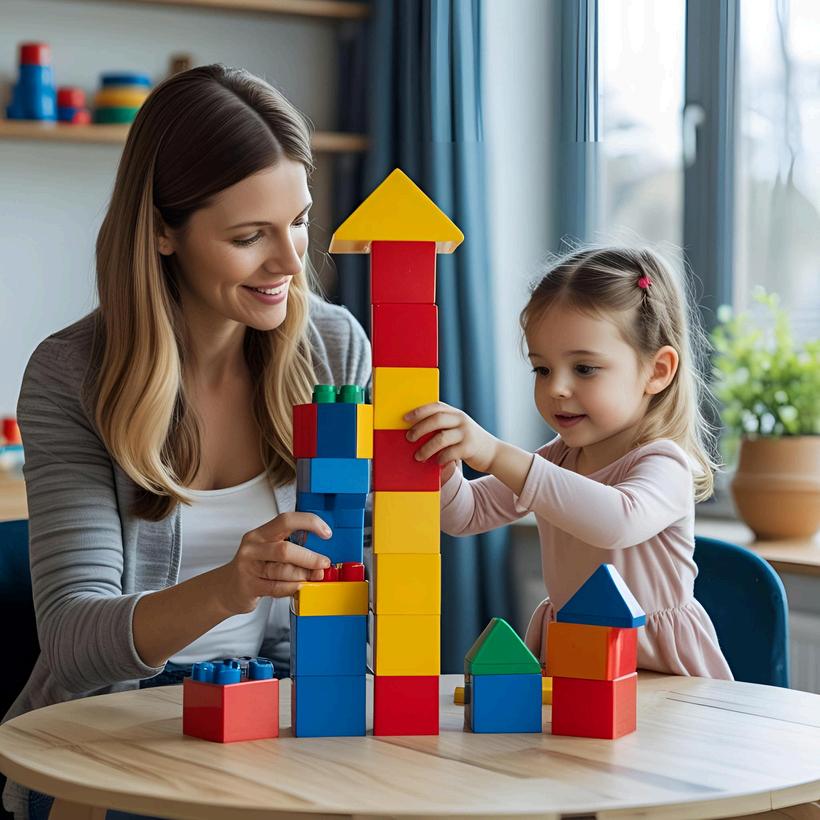
dressed,orridingoutabigwaveof emotionstogether,youare teaching You’remodellinghowto managestress,howtoaskforhelp, andhowtokeepshowingup,again andagain
Andifyou’reinaseasonwhere
nothingseemstobeworking; you’renotfailing.Itlikelyjust meansyourchildneeds connectionbeforeanythingelse canclick
AGentleReminder
Youmaynotalwaysfeellikea
teacher,andtherewillbedays thatstretchyourcapacity
Butineveryhug,everydeep breathbeforeresponding,every timeyouchoosewarmthover frustration,you’reoffering somethingprofoundlyhealing You’reteachingyourchildthat theymatter
Thattheyaresafe Thattheyareloved
Andthatisthefoundationforall reallearning
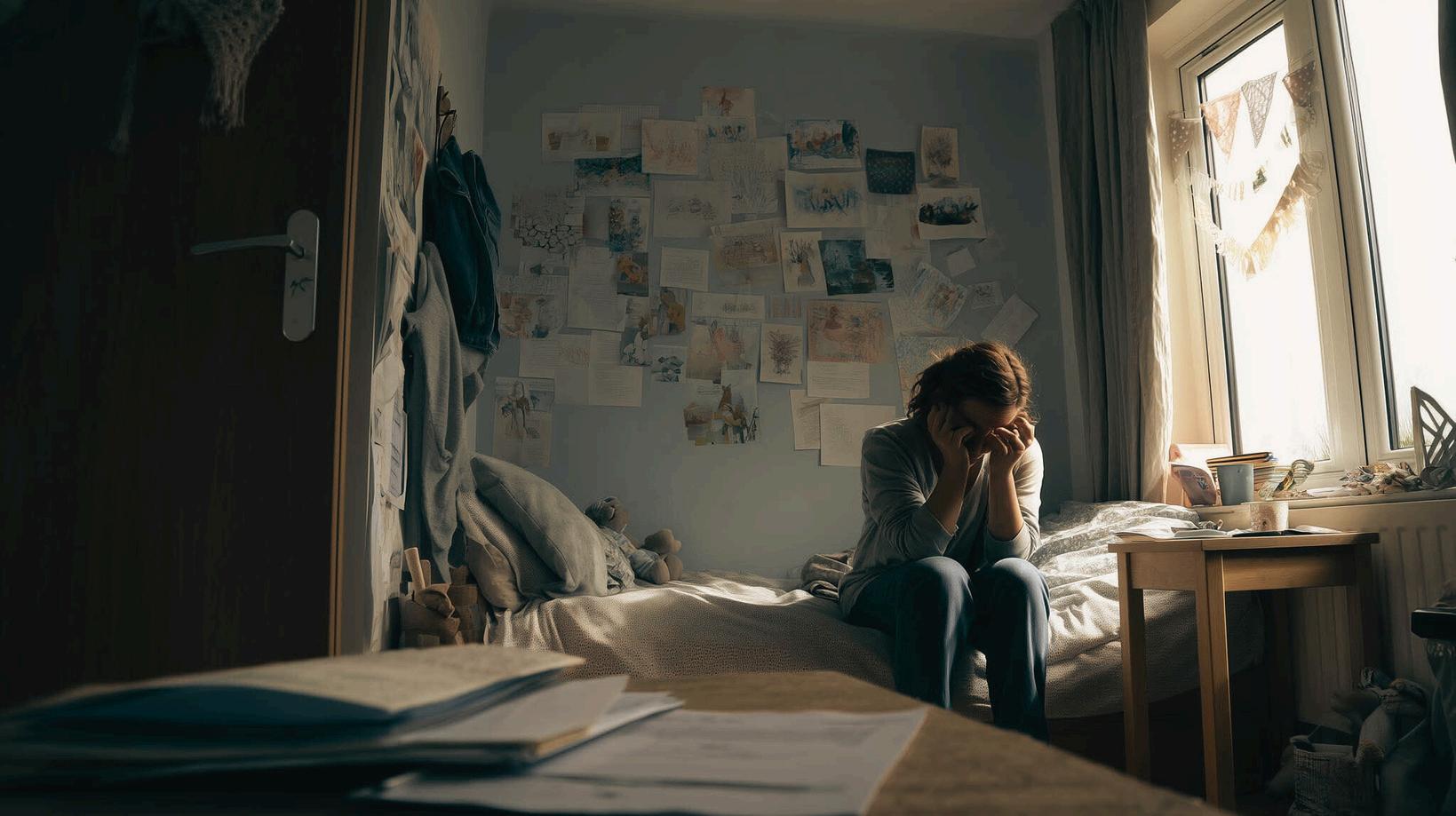
JessicaisthefounderofNurtured Belongingwhereshehelpsparents andadoptedchildrenovercome challenges,healfromthepast,and buildstrong,connectedrelationships. ToconnectwithJessica,goto https://nurturedbelongingcom
Foster care isn’t a spreadsheet
It’s being woken at 3am by a child who can’t sleep. It’s seeing the fear, and still showing up with love. It’s crying in the car after holding it together all day.
And yet—so many decisions still come down to data, not people.
At TRUE, we don’t just look at the numbers. We listen. We walk with families. We put relationships first.
Because the forms don’t feel it. But foster families do.
Photo:©COECTviaCanva
EARLY YEARS AND SCREENS
WrittenByArabellaSkinner&DrZacharyduToit
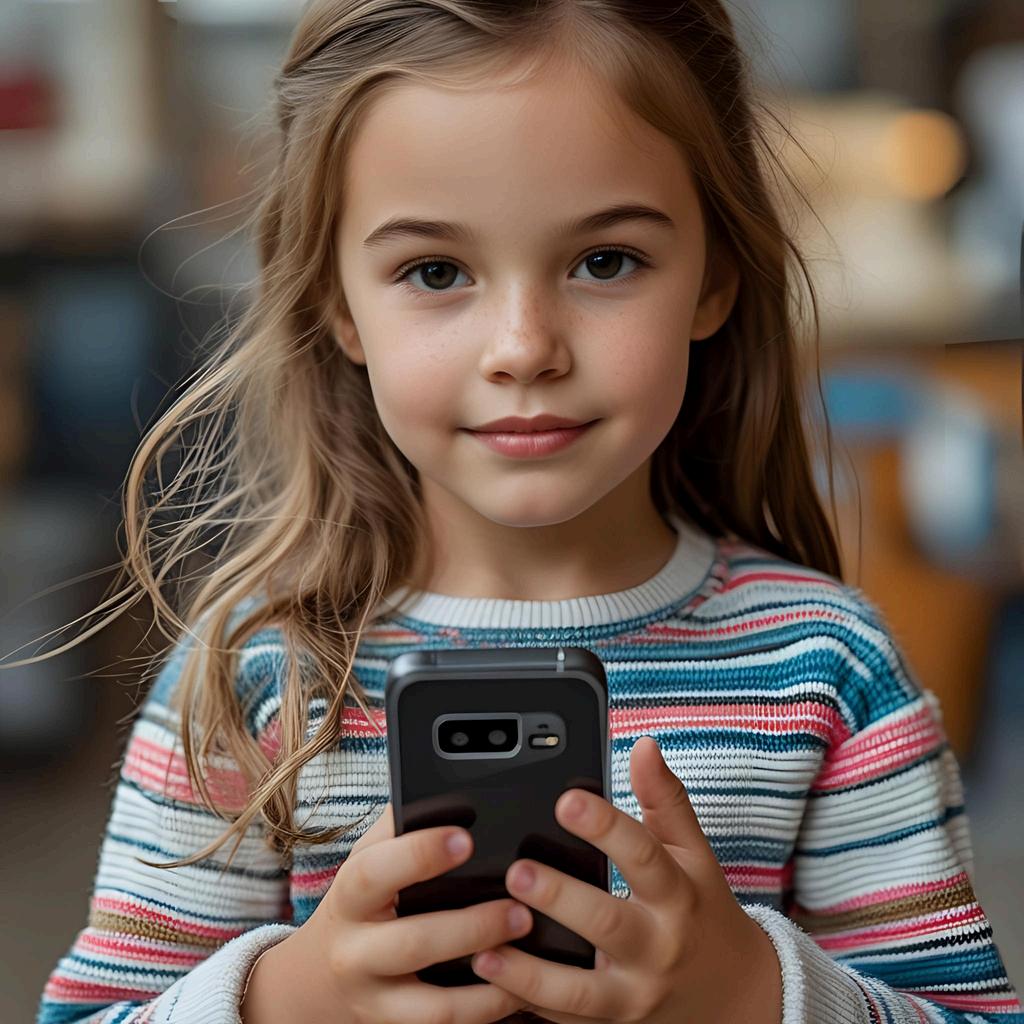
Thepotentialharmscausedby screentimeinchildrenandyoung peopleappearintuitivetoparents andareincreasinglywell-elucidated byresearch Growingcultural awarenessoftheharmsof smartphonesandsocialmedia, especiallyforteenagers,iswelcome. However,therehasbeen significantlylessfocusonthe potentialharmsoftheubiquitous useofscreensontheyoungest children.Thisarticlehighlights concernsandoffersapproachesto thismodernparentingpuzzle.
Thebrainsofbabiesandtoddlers aresusceptibletotheexternal environment theyaredesignedto developinresponsetothecues aroundthem,anddigitaldevicesdo notofferthis Thereisnoevidenceto supporttheintroductionof technologyatanearlyage,andthe
increasinglyextensiveglobal researchshowstheimmediateand long-termeffectsoffrequentand prolongedscreenexposure Froma parentalperspective,toenable healthydevelopmentand attachmentpatterns,Health ProfessionalsforSaferScreens (HPFSS)recommendchildrenunder twoyearsoldhavenoscreentime apartfromvideocallswithfamily.
Itiscommonplacetoseeababy withasmartphoneattachedtotheir pramoratoddlerproppedatatable withascreenandheadphones 27% of3-4yearoldshavetheirown smartphones Whentoddlersare usedtohighlevelsofsensory stimulationfromscreens,everything elseappearsdulloruninterestingin comparison Thechildis,therefore, lessmotivatedtoexploretheir environmentandseekinteractions,
missingmeaningfullearningand developmentopportunities HPFSS recommendsthatparentsmindfully transitionfromscreentimetononscreentimeatallages Givewarning andletyourchildknowthatscreen timeiscomingtoanendsoon. Transitionactively,likeplayingagame suchaseye-spy,peekaboo,orsinging asongwhilstchangingactivities;this smoothsoutthestimulationofturning thescreenoff.Furthermore,being preparedbyplanningafunpostscreenactivitymakesiteasierfor everyone.Lastly,stickwithyour decision childrenneedroutineand structure,andbyadheringtoyour decisionandenforcingit,yourchildwill knowwhattoexpectandwillhopefully lookforwardtothepost-screenactivity too HealthProfessionalsforSafer Screenshaveevidence-based resourcesthatparentscanuseto informtheirparenting
Photo: ©COECTvia Canva
Whenconsideringdevelopment, researchshowsthatincreasedscreen timenegativelyimpactsyoung children.Childrenwhowatchedmore than90minutesof“dailydirectscreen time”were,attheagesof4.5years andeight,belowaveragefor vocabulary,communication,writing, numeracy,andletterfluency.Theyare morelikelytoplayalone,belessliked byotherchildren,belessconsiderate, andbelesslikelytosharetheirtoys ThereareseveralapproachesHPFSS advocatesforintermsofoverall reductioninscreentime Firstly,the developmentofafamilydigitalplan, co-createdwitheveryone’sinput whereappropriate Thisplanshould balanceprohibitionwithpositive screentime Positiveplanningof screentime,inalignmentwith guidanceasperHPFSS,canhelp regulatethechild’suse Secondly,and moreimportantlyasthechildgets older,ishavingaunifiedstance amongyourselvesasparentsandwith otherparentsaboutscreentime Ifyou wanttoseewhat’shappeninginyour localarea, Smartphonefreechildhood.co.ukisan organisationhelpingparentstocome togethertoaddresssmartphone usageascommunities.
Amajorthemeindigitalparenting guidanceistomodelhealthyuse oneselfasaparent.He ofscreenuseisagiftt thelongrunbecausei withoutscreens,which intoresilienceandflou future Ontheotherha tabletsareoftenused calmas“digitaldumm canhinderthedevelop children’sself-regulati longterm Studieshav amountofscreentime 35yearsoldcanpred intheirangerandfrus yearsold Furthermore
patternwheremeltdownsbecome associatedwithscreentime,asusing screenscandiminishself-controland resultinmorefrequentoutbursts. HPFSSrecommendsprioritisingfaceto-faceinteractions,whichareso criticalfordevelopment,particularly outsideactivitiesthatholdmany benefits.Thetermtechnoference referstothenegativerolescreensplay ininterpersonalrelationships Technoferenceclearlycanimpact children'sattachmentpatterns; therefore,itisrecommendedthatboth parentandchildusescreensaslittle aspossible Childrenandscreensorg hasanoutstandingcollectionof resources,andweencourageyouto visittheirwebsite
Theimportanceofsleepandrest cannotbeoverstatedthroughoutthe wholelifecourse childhoodisno different Whenconsideringwhyour childrenaremisbehaving,alackof sleepandrestmayhavearoletoplay TheincreaseinADHDandASD symptoms,aswellasatypicalsensory processing,has,inpart,beenshownto belinkedtotheriseinscreenusagein youngchildren.Theevidencesuggests thatexcessivescreentimemay significantlycontributetothe developmentofADHDinchildren. Longitudinalstudieshaveshown strongevidencethatincreasedscreen
SpeechandLanguagereferrals havehitanall-timehigh,with1.9 millionchildrendiagnosedwith speechandlanguagechallengesin 2023,and25%ofspeechand languagepostsareunfilled.Achild withspeechandlanguage challengesismoreatriskof emotionalandbehavioural disorders,mentalhealthissues,and worseliteracyandnumeracy At least60%ofyoungoffendershave languagechallenges
Excessivescreenusehasserious consequencesforchildren’s development Accordingtothe KindredSquaredSchoolReadiness survey,teachersreportthatathird ofchildrenarenotschool-ready
InanaverageReceptionclassroom: �� 45%ofchildrencannotsitstill �� 34%don’trespondtosimple instructions
�� 36%struggletoplayorshare withpeers
�� 25%arenottoilet-trained
Theuseofscreenshasincreased, andthistrendappearstobe continuing.Nearlyhalf(49%)of teacherssayschoolreadinesshas declinedsincelastyear. Thereportexploresmultiplecauses, butscreentimeisasignificant

�� 54%ofteacherssayparents spendmoretimeonscreensthan engagingwiththeirchildren
�� 54%ofteachersbelievechildren exceedtherecommendedtwohours ofscreentimedaily
�� 52%sayparentsaren’treading enoughtotheirchildren
Thereisenoughevidencetoact,and manyoftheactionsweneedtotake forouryoungestarefreeandeasy forustoimplementasasociety
Createclearscreentime guidanceforEarlyYears.Health ProfessionalsforSaferScreens recommendsnoscreensbefore twoandnomorethan30minutes adayforchildrenbetween2and 5yearsold.
Makeparentsawareoftheharms ofscreensbygivingthemclear guidancethroughapublichealth campaign
Supportparentsandcarerswith opportunitiesfortheirchildrento playandhelpthemunderstand thevalueofplayasa developmentaldriver
Communicatethevalueof sharedactivities-forexample, sharedreadingisprovento supportlanguage development
Removescreensfromnurseries andearlyyears
IftheGovernmentisseriousabout itsstatedmissionto“breakdown barrierstoopportunitywitha milestoneofgivingchildrenthe beststartinlife”,thentheyhaveto recognisethatitisunachievable unlessitaddressestheissueof screens.Theharmsthatscreen usageisdoingtoouryoungest children,andthelackofguidance fromthegovernmentinthisarea (oroftenencouragementtohave morescreens)haveserious consequencesfortheindividual child,impactingtheirabilityto learn,buildrelationshipsandpay attention-allvitalforchild development Italsohasenormous implicationsforsocietywiththe associatedcosts speechand languagetherapy,increased EHCPs,increaseddiagnosisof ADHD,ASD,andatypical neurodevelopmentalconditions,as wellastheopportunitycost
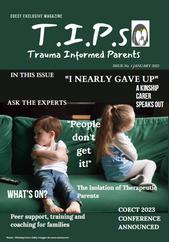
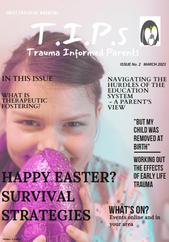


Thiscanfeeloverwhelmingfroma parentingperspective However,as mentioned,manyapproachescan betaken,suchascreatingadigital familyplan,prioritisingface-to-face interactionsbyfindingalternatives, andmodellinghealthyuseyourself Wecannotoverstatetheimportance ofthebedtimestory indeed,any story theevidenceisoverwhelming Childrenwhoarereadtoperform betterandavoidallscreensbefore bedtime Becomingawareisthefirst step Ourwebsitehasresourcesand approachesyoucantakeathometo helpyourchilddevelopapositive relationshipwithscreens.

ortovisitthewebsite,scanhere Formoredetailsonthe researchmentionedabovevisit here


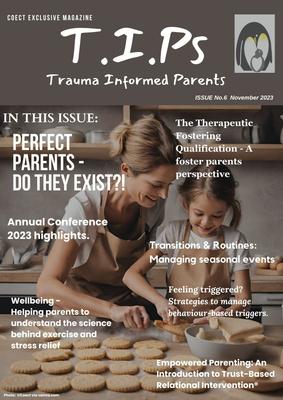
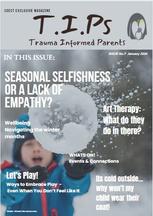
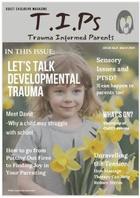



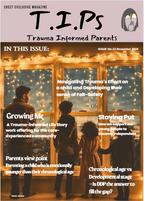
Fosteringa lovefor life-long learning
Written By Julia Black
Whenyouandyourfamilydiscover thatspecial‘thing’youweremeantto explore,everythingtransforms Irefer toitasyourswitch,forit’sevidentin youreyes–it’sasifyourlightshave beenturnedon.Byincorporatingyour passionsanduniquetalents,you becomedeeplyengagedinyour pursuits,almostinstantly Asyoustep intoyourspotlight,youradiate brilliance LightsOn!
ForthepasttwodecadesI’vebeen obsessiveaboutunderstandingthe artandscienceoflearning I’ve workedwiththousandsofchildren, youngpeopleandadultstoshifttoa sustainablemodelofsuccess,where wefeelhappy,fulfilledandcurious Mylearningandlivingphilosophy, approachandblueprint–LightsOn® –usesthepowerofyourmind,the neuroplasticityofyourbrain,the intuitionwithinyourheart,andthe energeticshiftswithinyourbodyto learn,grow,healandflourish
Thereissomethingmagicalabout theembodiedexperienceofbeing connectedmentally,emotionally, physicallyandspirituallytolearning. Itfeelssogood,butitalsotakes courageandcommitment Itcanfeel vulnerableandexposingtoexpress allthatisonyourheartandmind
Parentswhosefamilieslovelearning understandonesimpletruth:it beginswiththem Oncethislands, theyembraceparenthoodinanew way Theyrealisebeingaparentisa

richsourceofpersonaland professionaldevelopmentandthey openupandcreatealifeof abundance,happinessandinner wealththatenricheseveryareaof theirlives.
Althoughmytwokidsarenow youngadults,Irecentlyreadan illustratedchildren’sbookbyJames Dunbar Itexploredtheconceptof timeandonequestionjumpedout atme.
Whatcanhappeninten heartbeats?
Itcapturedmyimaginationandgot methinking Howmanyheartbeats dowehaveoverourlifetime?How manymightIhaveleft?
Itturnsoutwehave,onaverage,25 billionheartbeatsduringour lifetime,ifweliveto80yearsold Howmightourlivesbedifferentif weconsciouslysuperchargedour remainingheartbeatswiththe energyoflove?
Iwanttoinviteyoutowonder alongsideme Whatifweview theseheartbeatsasourfamily’s innerwealth?Couldwefeeltruly abundantwiththesimplestoflives? Whenweconsciouslydecidewe wantourhearttosingandresonate withlove,webecomemorepresent inourlives Toexpressyourcreative energyandradiancethrough emotionssuchaslove,joy,peace
andgratitude Totrulyallowyourself, asaparent,toenterastateofbeing whereitfeelssogoodtobeyou To feelalive Vibrant Expansive
WhenyouareLightsOn,your thoughtpatternsareempowered ‘I candothis Ihavewhatittakesto keepgoing,nomatterwhat’ Emotionssuchascontentment, hope,happiness,love,joy,peaceand gratitudemakeyoufeelalive.Like youcandoanything.Youaremore creativeandenergisedandhavea rock-solidbeliefinyourselfanda positivesenseofwellbeing Youlike, orevenlove,whoyouare
Howmanyofyourlife’sheartbeats willyoubebraveenoughtoshine yourinnerlightoutintotheworld?
Thisisn’taflippantinvitation Notone toglossoverandsay‘OfcourseI chooselove’ Becausethroughmy workasaMasterNeurocoachwith thousandsofchildrenandparents overthepastfifteenyears,I’ve discoveredthattuningintoour Radiancecanactuallybemore scarythanbeinginDarkness Itcan feelmorevulnerable Exposed Uncertain.Likewehavemoretolose ifwelovesomuch.Sowe unconsciouslysummonfearbackin
BeingLightsOffisequallyas important Thegoodnewsisthatitis equallyimportanttobeLightsOff Thisiswherewefeellost,scaredand
Photo:©TedGiffords
alone.Unplugged.Powerless.Stumbling aroundinthedark.BeingLightsOffisa reactivestatewhereyourthoughtslimit anddiminishyourpower ‘Ican’tdothis It’stoohard I’llneverbesuccessful,so whybother?Imightaswellgiveupnow’ Everythingfeelshard,pointless,forced andchallenging Likewalkingthrough treacle Youwillfeelinsecure,anxious andunderthreatinsomeway This internalstateiswhereyourhidden potentialislockedawayandcrucialfor flourishing.Thekeyistolearnhowto leadyourselftoresonatethroughthe LightsOnsignaturesbychoice,anduse beingLightsOffforgrowth.Thisiswhen everythingchangesandyouenteranew paradigm Onewhereyoushiftfrom leadinglifefromtheoutside-intoliving fromtheinside-out
Howmanyofyourlife’sheartbeatsmight youstaystuckinfear?Takesomeof today’sheartbeatstoreflectonwhether youcurrentlylivelifemoreLightsOnor LightsOffonadailybasis Thinkabout differentareasofyourlife:workand career,homelife,relationshipswith friendsandfamily,andmental, emotionalandphysicalhealth.Runa quickaudittogetclarityonwhetheryou resonatemorethroughtheLightsOff

signaturesofDarkness, DimnessandGlimmerorthe LightsOnsignaturesofGlow, BrillianceandRadiance?
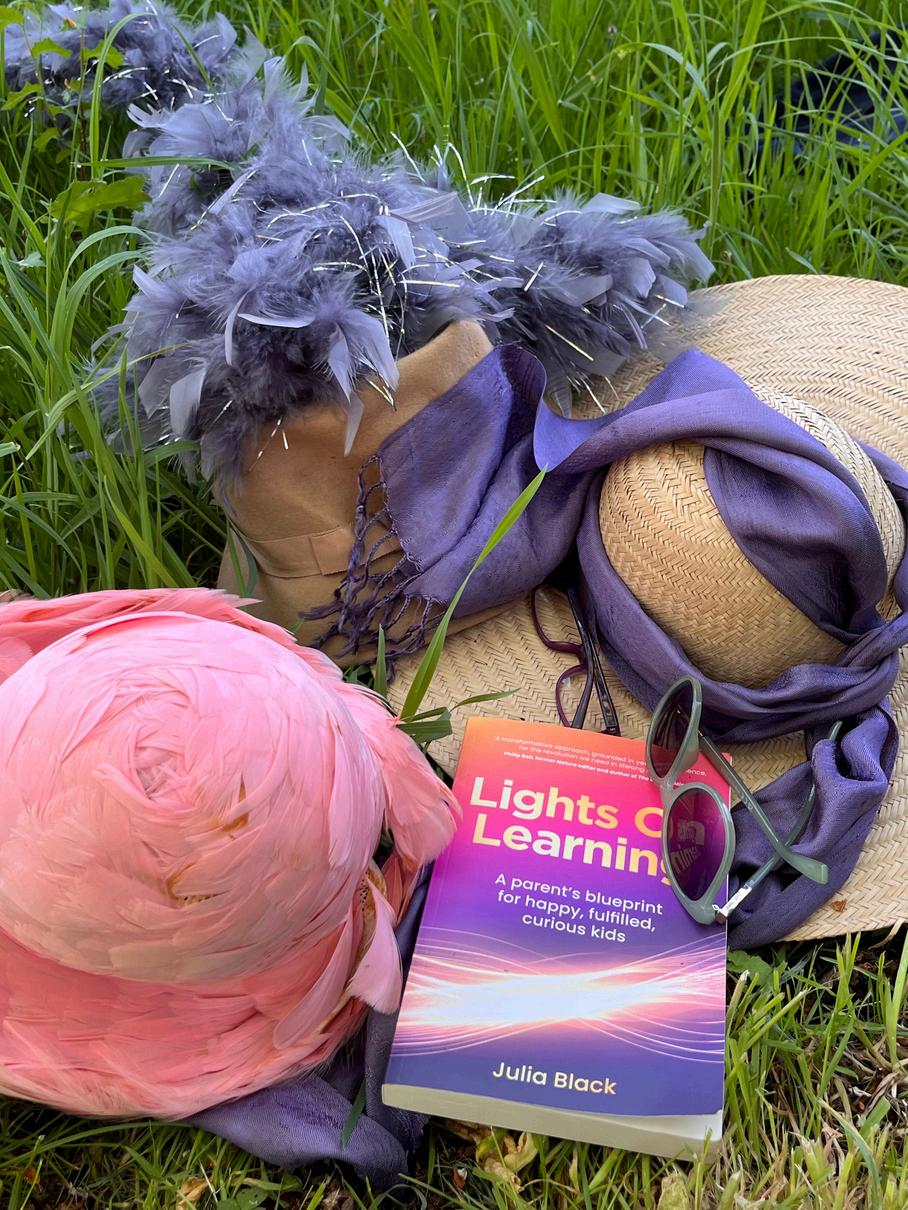
Whatinsightslandforyou?Are youbeingwhoyoutrulywantto be?Orarelifecircumstances constantlytrippingyouup?
Myvisionisofaworldwhereall childrenlovelearningbecause childrenwholovelearningcan, andwill,changetheworld For thisrealitytoplayout,weneed asmanyadultstoknowhowto flourishthroughchoice,not circumstance.Ihopeyouwill becomeoneofthem,andIam hereforyouifthisisthepath youchoose.
TofindoutmoreaboutJulia Black’sLightsOnphilosophyfor yourselforyourfamily,visit www.lightsonuniverse.comorbuy herbook*LightsOnLearning-A Parent’sBlueprintForHappy, Fulfilled,CuriousKids*
Photo:©TedGiffords
Photo:©TedGiffords


Written By Helen Ayres & Joanne Wilson
For parents navigating complex challenges especially those on the edge of care proceedings or raising a child with an Education, Health and Care Plan (EHCP) support can feel scarce, and judgement can feel overwhelming. That’s why the Level 2 Certificate in Therapeutic Parenting is proving to be a lifeline Rooted in empathy, neuroscience, and practical strategies, this course is transforming how parents connect with their children and with themselves
Therapeutic parenting isn’t just a skill set; it’s a mindset shift. It equips caregivers to respond to traumadriven behaviours with compassion and consistency The course provides insight into attachment, regulation, and the importance of repair after rupture. For many parents, it’s the first time they feel truly understood and empowered
The Level 2 Certificate in Therapeutic Parenting is more than just education it’s transformation. For families teetering on the edge, it offers a bridge back to connection, understanding, and stability For many, it's not an intervention; it’s a lifeline.

I signed up for the Level 2 Certificate in Therapeutic Parenting because I felt like I was at the end of the road. My son has an EHCP due to complex needs, and our home life had become completely chaotic I was constantly being called into school, and there were whispers about social care involvement I felt judged, isolated, and like a failure.
This course gave me something I hadn’t had in a long time hope Personally, I’ve gained a better understanding of how my child’s brain works under stress, and why traditional parenting methods just weren’t effective. Professionally, it’s also helped me advocate more confidently for the support he needs in school
One thing that stuck with me was learning about PACE (Playfulness, Acceptance, Curiosity, Empathy). That simple shift in how I respond especially during meltdowns has changed everything We now have more moments of connection than conflict I’m still learning every day, but I no longer feel alone or helpless.
Taking this course didn’t just help me parent differently it helped me see my child differently
Sarah L., parent of a 10-year-old with an EHCP
Photo:©COECTviaCanva
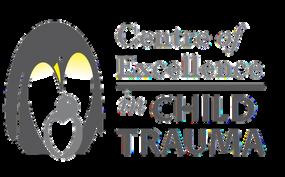
This programme takes a therapeutic approach to support parents caring for neurodivergent children or those who have experienced early life trauma. It is particularly beneficial for those seeking to obtain an Education, Health & Care Plan (EHCP)
Level 2 Certificate
Therapeutic Parenting
Building the foundations of a trusting relationship through the use of the Therapeutic Parenting Approach "Secure Attachments founded on Empathy" (SAfE) You will learn about:
Therapeutic Parenting – Building the foundations of a trusting relationship
Meeting the Needs of the Growing and Developing Child
Creating a SAfE Parenting Environment
Therapeutic Parenting
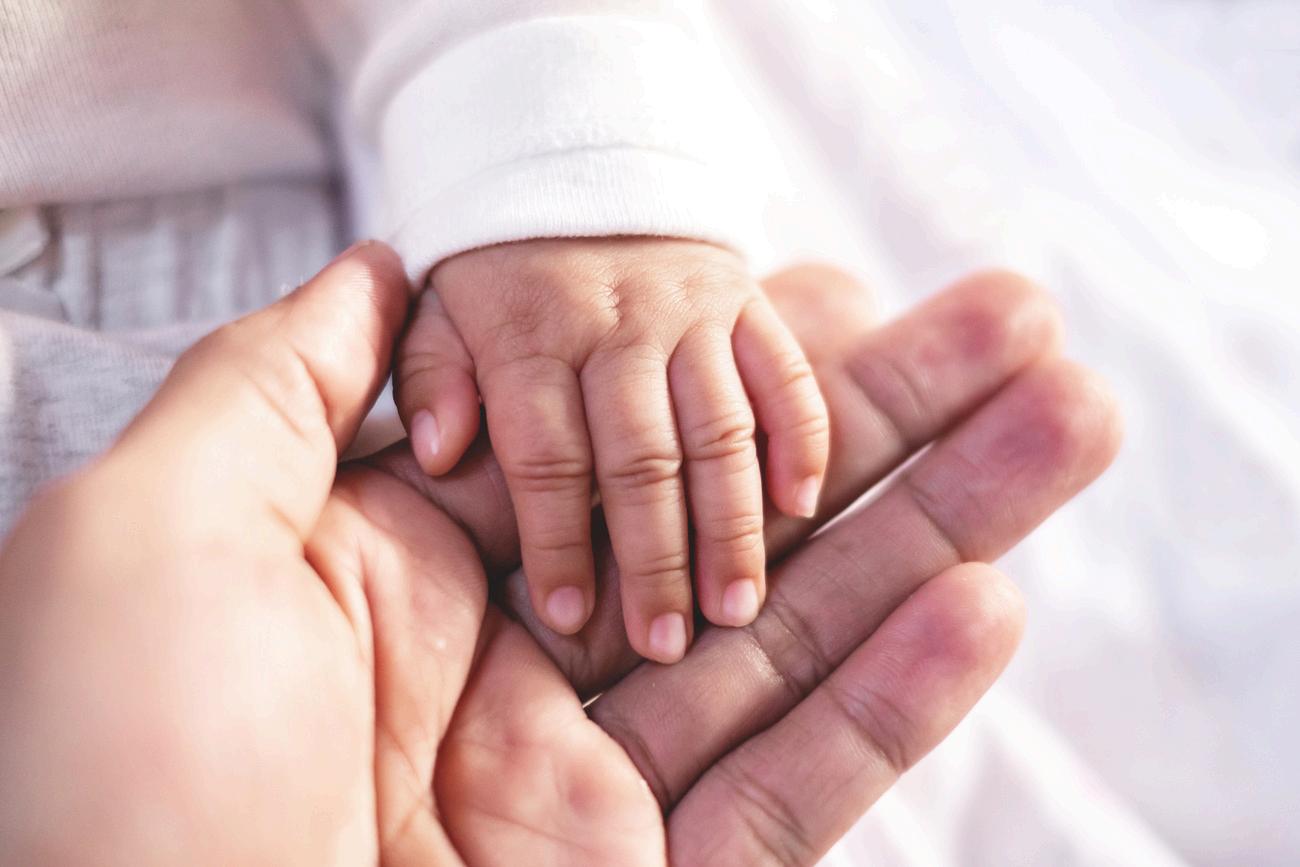
SafetyFirst!
WrittenBy DrLibbyGaskell
Schoolistoughattimesfor everyone Examstress,new transitionsandnewclassmates, navigatingtimetables,forgetting yourhomeworkforthatstrict teacher,etc.Thisisusual,and mostimportantly,such experiencesoftengenerate tolerablelevelsofstress.Itisarite ofpassage,somemightsay However,forothers,thestress triggeredbyschoolistoxic For childrenwithattachment vulnerabilitiesand developmentaltrauma,whoare thefocusofthisarticle,the schoolenvironmentcanbe particularlytriggering.
Whenchildrendevelopinthe contextofasafeandnurturing home,wheretheirneedsaremet andtheirtrustinadultsis automatic,theycanspendtheir resourcesandenergyon learning,problem-solving,and exploring Whenchildrendevelop inthecontextofanunsafeand scaryhome,wheretheirneeds arenotoftenmetandtheyhave activelylearnedtheymustnot trustadults,theyhavenochoice buttospendtheirresourcesand energyonsurvival,keeping watch,anddefending themselves.Forthesechildren, thereisneitherthetimenorthe resourcestoconfidentlyexplore theirworldandlearn Theymust restrictthisdevelopmental curiosity,andasaresult,they don’talwaysdevelopcognitively andsociallyasothersmight Theiradverseexperiencesare thereforeneurotoxicandcan changethewaythebrain develops.Foroldersiblingsina siblinggroup,theymayalsobe inappropriatelyandunfairly

taskedwiththecareneedsoftheir youngersiblings,causingafurther strainontheirmentalresources
Therefore,bythetimechildren withearlytraumastartschool, theyarealready, developmentally,onthebackfoot Theymaybedescribedas academicallybehindordelayed, andthechildthemselvesmay begintonoticethattheyinterpret theworlddifferentlyfromthe otherchildrenaroundthem In school,childrenmaybeobserved tohavelowself-esteem,andtheir survivalbehavioursare interpretedanddescribedas hyperactive,defiant,disruptive, challenging,andevenharmfulto others.
Inschool,childrenareaskedto trustadults,listentothem,and followtheirinstructions Theyare askedtoapplytheirenergyto learningandconcentration They areexpectedtorelaxand socialiseduringunstructured timesofplay Mattersoftrust, directingenergytolearning,and relaxingandsocialisingdon’tfitor matchwiththoseanxiousneeds andbehavioursofsurvival.You canonlylisten,concentrate,trust, andrelaxwhenyoufeelsafe Therefore,functioninginaway thatisexpectedofyouinthe
schoolsystemissimplyatodds withwhatisoftenthenormfor traumatisedchildren
Also,childrencanoftenexperience missededucation,inadditionto anycognitiveorbehavioural difficulties Missededucationcan ariseasaresultofneglect, repeatedschoolmoves,missing episodes,exclusions(oftenin responsetothosesurvival behavioursdiscussedabove), hospitaladmissions,andschool refusal(phobia) Childrenmay simplynotbepresentatschool, canbeoutofaneducational routine,andoftenhavealackof investmentineducation(evenif theyarecognitivelyable)dueto feelingsofpoorself-esteemand hopelessness.Thisunfortunately reinforcesfurtherfeelingsof unsafety.
Ihaveheardvariousbeliefsabout schoolexpressedduringthetimeI havesupportedchildrenwith developmentaltrauma,whichcan actasasignificantbarriertothem accessingeducation(atleastin thetraditionalandexpectedway). ForsomeofthechildrenIhave supported,schoolhasbeen consideredaplace;
“WhereI’mforcedtointeract,when Idon’twanttoordon’tknowhow to”
“WhereIamjudged”
“WhereIamexpectedtobehappy andcompliantallthetime,butinmy headit’safairground!”
“Wherethingsaresprungonyou,and Ineedstability”
“WhereIdon’tunderstandthingsand feelbehind,soIfeelrubbishabout myself”
“WhereIdon’tfitin,orwhereIwas bullied”
“WhereIhavetoleavethesafetyof myfostercarers”
“Whereadultstrytocontrolmeand thisissoscaryforme”
“WhereIamexpectedtodothingsI justsimplycan’tdo”
Althoughschoolcanbeachallenging environmentforsomechildrenwith trauma,Ihavealsoknownmany occasionswhereschoolhasbeena safehavenforchildren.Educational staffhavebeenthechildren’sonly constant,andhave,viatheir dedicationandskill,becomeachild’s keyattachmentfigure Ihavemet someamazingeducationalstaffwho reallyaresuperheroes!Sucha positiveeducationalexperiencefora childishighlybufferingandcanbean antidotetotheharmfulexperiencesto whichtheyhavebeenexposed elsewhere.
Thekeymagicingredientforchildren intheseresponsiveandtraumaawareschoolsistheirabilitytooffer emotionalsafetytothechild.Most childrenwithoutexperiencesof chronictraumaoftenfeelsafeunless theyarefacedwithathreat Feeling safeistheirdefaultpositiondayto day Butforchildrenwith developmentaltrauma,duetothe changesintheirbraindiscussed above,theirdefaultpositionistobein the‘fightorflight’position,tobeready fordangerandthreat Havingthisas theirdefaultpositionmakesitfar easierandfastertosurvive,butfar moredifficulttocognitivelyapply themselvesinschool
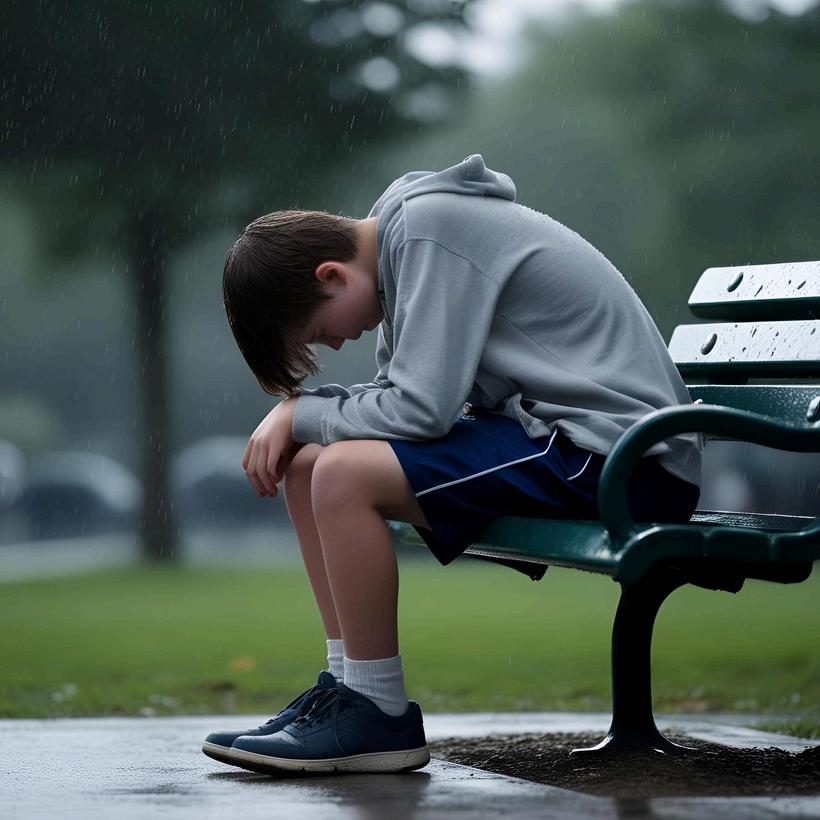
Therefore,inschools, interventionsshouldbefocused onsupportingachildtofeelas emotionallysafeaspossible,not correctingandpunishing behaviours Tofeelsafeisa neurologicalandessential prerequisiteforlearningand educationalstability.Thereare amplestrategiestopromote emotionalsafetyspecificallyin schoolsoutlinedintheA-Zof Trauma-InformedTeaching(by SarahNaishandcolleagues), andIwoulddirectany educationalstaffreadingthis articletoexplorethisgame changerofabook
Lastly,asIclosethisarticle,I muststressthatdespite discussingthedifficultiesfaced ineducationbychildrenwith trauma,itisalsomyexperience thatsignificantcourageand progressareoftenshownby thesechildrenineducational settings,andunfortunately,itis oftenmissedbyprofessionals aroundthatchild
Thisisnotbecause professionalsareunwillingto recogniseprogress.Inmy experience,professionalsare oftenpreoccupiedbysheer volumesofworkload,under significantpressurefromthe systemsinwhichtheywork,and areatahighriskofburnout As professionals,weareprimed andconditionedtobelievewhat ‘progress’lookslike,andat timesthetargets,plans,and matricesdesignedtohelp childrenonlyreinforcethese primedandconditionedviews andunrealisticexpectations. Thestressthatcanbecreated bytheseinappropriate expectationsisfeltbyteaching staffandthechildrenalike,and mostcertainlydoesnot contributetotheemotional safetyneededtothrive
Educationisincredibly important,butitisnotpossible unlessthereisemotionalsafety first.
Photo:©COECTviaCanva
UPCOMING EVENTS
CoECT Training, Workshops & Events
Schedule 2025/2026
Trauma-Informed Practice
Trainer: Gareth Thomas
Friday 19th September 2025, 10:00 am - 3:00 pm, Wales

Wednesday 14th January 2026, 10:00 am - 3:00pm, Gloucestershire
Wednesday 13th May 2026, 10:00 am - 3:00pm, Manchester
Understanding behaviour as a mode of communication
Trainer: Gareth Thomas
Tuesday 21st October 2025, 10:00 am - 3:00 pm, Wales
Wednesday 4th February 2026, 10:00 am - 3:00 pm, Gloucestershire
Wednesday 17th June 2026, 10:00 am - 3:00pm, Manchester
Understanding and Addressing Unmet Needs in Children through Therapeutic Parenting and TraumaInformed Care
Trainer: Sarah Naish and Sarah Dillon
Wednesday 12th November 2025, 10:00 am - 3:00 pm, Wales



Monday 23rd March 2026, 10:00 am - 3:00 pm, Gloucestershire
Tuesday 14th July 2026, 10:00 am - 3:00 pm, Manchester
BAIRT - Behaviour Assessment of Impact and Resolution Tool
Trainer: Sarah Naish
Tuesday 14th October 2025, 10:00 am - 3:00 pm via Zoom
Tuesday 3rd February 2026, 10:00 am - 3:00 pm via Zoom
Tuesday 23rd June 2026, 10:00 am - 3:00pm via Zoom
Introduction to Trauma-Informed Life Story Work
Trainers: Sarah Naish and Sarah Dillon
Wednesday 10 September 2025, Dursley, Gloucestershire th
Tuesday 13 January 2026– Dursley, Gloucestershire th
Thursday 14 May 2026 – Dursley, Gloucestershire th



COECTTRAINING,WORKSHOPS&EVENTS SCHEDULE2025/2026
Compassion Fatigue Day Retreat
Facilitator: Emma Edwards
Friday 30th January 2026, 10:00 am - 4: 00 pm, Gloucestershire
Friday 27 March 2026, 10:00 am - 4: 00 pm, Gloucestershire th
Friday 26 June 2026. 10:00 am - 4: 00 pm, Gloucestershire th
“What to do when nothing works “ Workshop
Trainers: Sarah Naish & Sarah Dillon
Monday 10 February 2026, 10:00 am - 3:00 pm, Gloucestershire th
Tuesday 16 June 2026, 10:00 am - 3:00 pm, Manchester th
Wednesday 9 September 2026, 10:00 am - 3: 00 pm, Wales th
Managing Challenging and Violent Behaviour
Trainer: Dave Edwards
Tuesday 16th & Wednesday 17th September 2025 - Coventry
Tuesday 18th & Wednesday 19th November 2025 – Wales
Tuesday 17th & Wednesday 18th March 2026 – Gloucestershire
Tuesday 23rd & Wednesday 24th June 2026 – Manchester
TIPsMeet-Ups
Joinourregionalpeersupportgroupstoconnectwithother parentsandcarersinyourarea!Heldonceamonthfor1-2hours inacafe,communityspaceorgreenspace,thesegatherings providewelcomingspaceforsharingexperiencesandsupport.



Finding the Off Switch! COECT Wellbeing
Written by Neil Cunningham
WhoisOffSwitch?
NeilCunninghamisacarer, musician,yogaandbreath instructor BasedinPeckhamwith hisstylistwife,Rachel,whippet Ziggy,budgieNorman,andthe visitingchildrenandyoungpeople that,asfostercarers,theyhelpto lookafter;healsolivessomething ofaparallellifeonZoomandno, that’snotanotherplanet.Neil formulated‘OffSwitch’,hisbreath programmeatatimewhengoing outwasimpossible Theaimwasto bringguidedself-careintothe homesofcarersandchildren Now thisprogrammehasdeveloped andexpandedhugely,workingwith HealthTrusts,NHSHealthCare professionals,looked-afterchildren, andsportspeople
WhatisOffSwitch?
Thisthingwedo,thisthingthatfills ourlungs,fuelsourhearttopump bloodaroundourbody,thistaking inofoxygen,expellingcarbon dioxide,thisexchangingofgases, wellIsimplycallthisthing ‘breathing’ That’sthebasicsofthe matter;look,wearealldoingitright now Handsupifyouarenot
Changingrhythms,increasing efficiency,findingthespace,that’s whatIcallimprovedbreathing If wearegoingtodoathinganyway, repeatingitoverandoverandover again,thenwemightaswellfind waystomakeitbetter You wouldn’tfailtoserviceyourcaror updateyourcomputeroperating system,wouldyounow?

Okyoumight,butyouwouldn’t expectthingstorunsowell,would you?Ifyoufindyourselfbreathing shallow,breathingfast,breathing throughjustyourmouth,failingto useyourdiaphragm,theseareall waystomakesurethatyouare nottakinginthemaximumbreath availabletous;airisoneofthe fewthingswhichremainfree,so fornowwecantakeinasmuchof itaswelike That’swherewewill start,breathinginthroughour nose,loweringthediaphragm, takingfullerbreaths,increasing ourcapacity
Breathein,fillourbellieswithair, breatheout,navelmovesin towardsthespineasweexpel CO2 Breathein,fillingourbellies, breatheout,navelmovesin towardsthespine,expellingCO2 Repeat,repeat,repeat,repeat Oncewehavethehangofthis, thenwecanbuildonit.Wecando thisbyourselves:breathein 2 3 4,out 2 3 4,in 2 3 4,out 2 3 4 Butit’smostlikelythatwe won’t!Andthat’swhere‘OffSwitch’ comesin
Wedon’twanttosetasidea portionoftimeandthenhaveto thinkaboutwhatexactlyitisthat wearedoing,decidingwhich patternswewilluse,settingan alarm,countingoffnumbersinour head Wedon’twanttoscroll throughcountlessappstoloadup whatwilljustbeasolitary experience,onethatwewillstop
halfwaythroughtomakeanice cupoftea.Instead,howaboutwe clickintoafifteen-minuteslot,a spacebetweenthings,ata convenientpointintheevening, postthefirstroundofbedtimes,pre theeveningwinddown Afifteenminuteslotthatyoucanchooseto join,ornot,dependingonwhere yourmindisafterthedayand whetherornotyoufeelthatyou wouldlikesomehelptoregainyour calm There’snoguiltshouldyou notjoin,notutsifyouclicklateor departearly;it’ssimplythereasan opportunityforyoutodo somethingthatwillmakeyoufeel better.
Fifteenminutessharedwitha communityofpeople,justpeople likeyou;closeyoureyes,relaxyour mindandfollowavoice Followa voiceasyouareguidedthrougha rangeoftechniques,avarietyof timings,pickingupsomehackson theway,allofwhichcanhelpclear andrefreshyourmind,calmyour senses,relaxyourentirebeing All withoutevenhavingtoleaveyour home,withoutturningonyour camera,withoutbeingrequiredto speak,tosayyourname,without beingaskedtolearnortakenotes.
That’sthepoint:Iamnot presentingyouwithyetanother task,anotherthingtothinkabout. Therearenoformstofill,noteststo take;thetestissimply:doyoufeel better?Haveyoubenefitedfrom thesefifteenminutes?
Breathein2-3-4,breatheout2-34 Breathein,closeyoureyes, breatheout,relax.Wehavebegun. Oh,youweren’tready!OK,breathe in2-3-4,breatheout2-3-4 Now, howdoyoufeel?Better?Great,so doI.
Ifwehadtodescribewhatitiswe dotogether,wemightsaymaking ourbreathwork,makingour breathworkbetter,findingwecan controlhowwefeelinbothour mindsandourbodiesbyhowwe choosetobreathe.Yes,that’sit makingourbreathwork Forthe purposesof'OffSwitch',Itendnot tosay'Breathwork',whichbyits verynameimpliessomeformof work;wearenotheretowork,we areheretorelax Wearehereusing breathtobringaboutthechanges werequire;weareheretoprepare fornowandforourfuture It'snot mystical,thereforeIdon’tpresentit assuch.Whatweexploreishistory, science,andmodernresearch. TherearenoNamastes,norare thereanylong,drawn-out scientificexplanationsinvolving blackboardsorequations;weare simplyheretobreathetogether
WhenImentionedthatIdon’task youtolearn,wellthat'scorrect;I liketobeaccurate Idon’taskyou tolearn,butequallythisinnoway preventsyoufromnaturallytaking onboardthepatternswhichyou findworkbestforyou,theones whichbringaboutthedesired results,thosewhichhavethe greatesteffectandprovidethe mostsignificantchange Youmay findyourselfusingthesepatterns consciouslyorsubconsciously,at timesofstressoratthetimesyou choosetorelax Idon’taskyouto learn,butthemoreyoujoin,the moretechniquesyouareableto takeonboard Eventhesimpleact ofimprovingthequalityofyour regularbreathcanbringprofound changestoyourlife.Breathingina group,eventhoughyouneither seenorhearother'OffSwitch' participants,providesthefeelingof beingapartofsomething,apart ofsomethingbigger,creatinga greaterstrengthandenergyand theknowledgeofbeingsupported

Youmayfindyourself‘meditating’but wedon’tusedescriptionslikethat;it’s justpartoftheprocess.Ifyoufall asleep,that’sfinetoo!Whenyou discoverthathappening,perhapsjoin futuresessionsfromyourbed Pyjamasareasgoodanoutfitasany other;nospecialclothingor preparationisrequired,justbeas comfortableasyoupossiblycan It’s yourtimetolookafteryourself,your giftoffifteenminutestoyou
HowdidOffSwitchcomeabout? 'OffSwitch'wasdesignedbackin2020, withtheaimtohelpcarerswork throughtheproblemsthatarose duringtheextendedperiodsof isolationinwhichweallfound ourselves Thesessionstookplacein thevirtualworld;theyweresuccinct,a briefmomentoftimeenablingusto refocusandreset.Thetechniqueswe usedcouldalsoberelayedand repeatedtothosechildrenandyoung peoplewewerelookingafter Aswe’ve movedon,thevalueandreachof theseself-caresessionshavegrown Thedurationalwaysremainsthe same:fifteenminutes.Easyto accommodateyetenoughtoachieve thedesiredeffect,alwaysdelivered live,withcareandcompassion Users nowincludecarergroups,looked-after children,HealthCareTrusts,andNHS healthcareprofessionals
Whatisbetterbreathing?
Well,whatwearelookingtodowhen breathinginistonourishbothmind andbody,andwhenbreathingout,to releasetoxinsandstress.Oncestress startstotakehold,breathislikelyto turnfastandshallow,limitingour
oxygenintake,towhichthebody respondsbyenteringfightorflight mode.Takingtimetorestoreaslow anddeepbreathpatterndecreases theneedforafightorflightstate As weactivatethebody’s parasympatheticnervoussystem, thinkofthisasthe‘restanddigest’ state;thiswillhelpde-escalateand de-stress,whichcanleadtomore positivefeelings.Thebenefitsof betterbreathingcanincludea greaterqualityofsleep,an improvedimmunesystem,better digestion,strongerrespiratory function,balancedbloodpressure, thereleaseofstresshormones,and areductionoffeelingsoftrauma, PTSD,depression,anxiety,aswellas animprovedmentalfocus;although itmaybeassimpleassaying,‘Ifeel abitbetter’
TryOffSwitchforyourself
Feedbackfrom‘OffSwitch’ participantsshowsthatimproved sleep,reducedanxiety,betterfocus, andtheabilitytocopewithstressful situationsarecommonresultsfrom thesessions.Butreally,thebestway tofindouthowbetterbreathingwill helpistojointhenextcourseof sessionsspecificallyforCOECT Join meliveviaZoomonMonday28th Julyat8:30pm-8:45pm.
Photo:©COECTviacanva

TIPs Consult (Virtual problem solving meet-up) TIPs Meet-Ups (Regional & Virtual Peer support groups) Discounts on Qualifications & Havening Sessions. Parental Peer Support Forums Family Meet-Ups (Regional Family Events)
